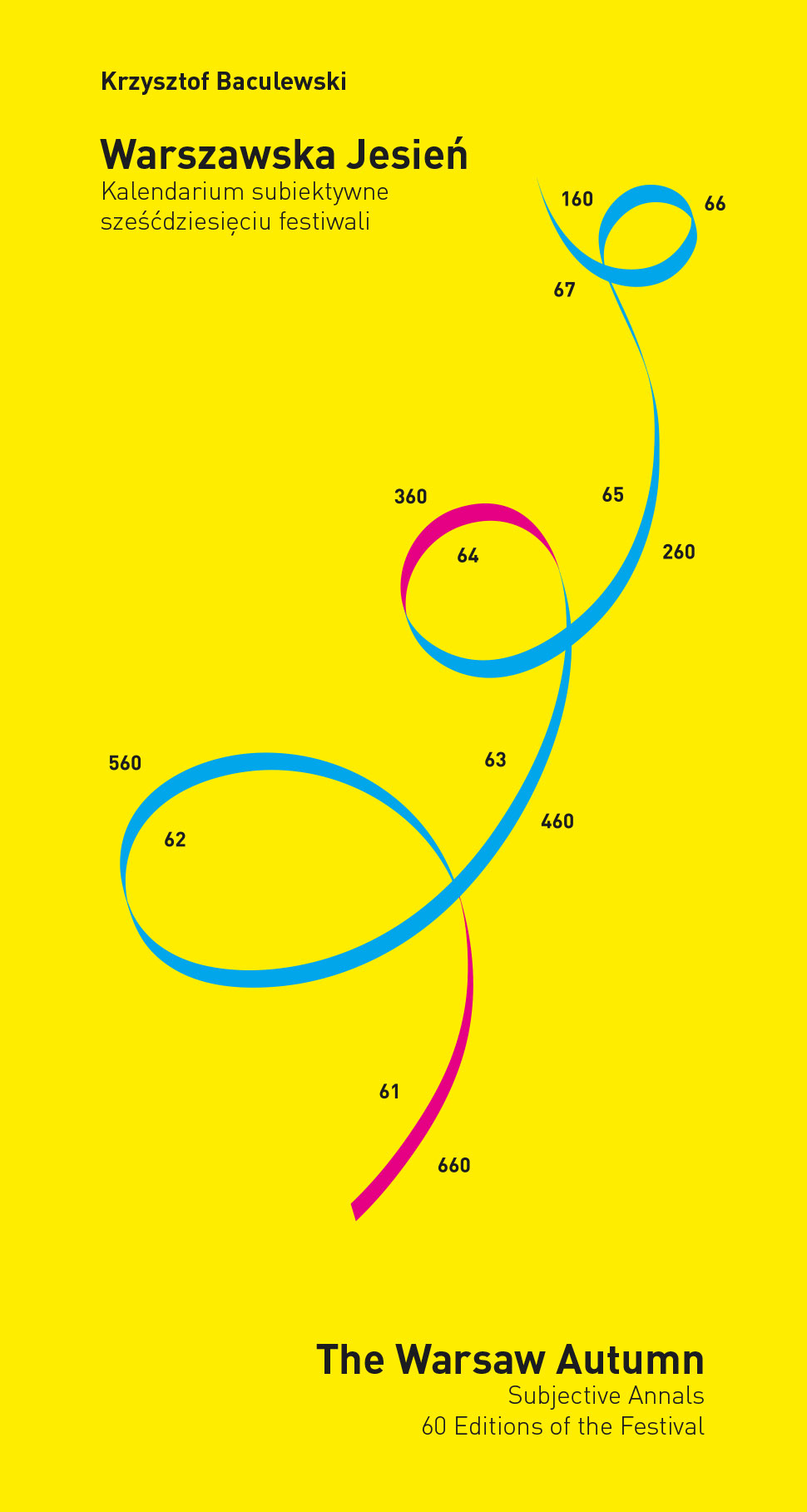
Krzysztof Baculewski "Subjective Annals 60 Editions of the Festival"
From that year on, the Festival started on Fridays (not Saturdays), and so lasted one day longer. The State Higer School of Music, whose concert hall was frequently used as a vanue for Festival events, changed its name to the Fryderyk Chopin Academy of Music.
The inaugural concert featured the latest work by Kazimierz Serocki: Pianophonie, with Szabolcs Esztényi as soloist. Another chink appeared in the censors' restrictions: the audience heard performances of the Viola Concerto by Roman Palester and Poème funèbre by Bolesław Woytowicz, composed in memory of Marshal Józef Piłsudski (the first head of the Polish State, re-established in 1918 after 123 years of foreign rule; the Marshal was not popular with the authorities of communist Poland). Aesthetically, Krzysztof Penderecki presented a new style, reminiscent of the music from the turn of the 19th and 20th centuries, in his Violin Concerto and in the 'sacra rappresentazione' Paradise Lost, staged by the Württembergische Staatstheater from Stuttgart, directed by August Everding. Moreover, the programme contained: Eugeniusz Knapik's Corale, Interludio e Aria, Louis Andriessen's Hoketus, and Karlheinz Stockhausen's Mantra. Among the performers there were the cellist Ivan Monighetti, baritone John Shirley-Quirk, the Symphony Orchestra of Finnish Radio conducted by Leif Segerstam, Jerzy Maksymiuk's Polish Chamber Orchestra, and others. The final concert included Klangschatten - mein Saitenspiel by Helmut Lachenmann. This concert also occasioned one of the legendary Festival fracas: The audience, bored, stopped listening to the piece and noise from the auditorium drowned out the music. The composer, in desperation, came onto the stage and made a somewhat arrogant speech (translated into Polish by Józef Patkowski from the balcony), in which he instructed the public that das ist ein Pianissimo-Stück and those who do not want to listen should leave. The conductor then carried on. The audience, like children who have been disciplined, fell silent, and then responded to the nished performance with enthusiastic applause. Paweł Szymański made his debut with Gloria for female choir and orchestra. Augustyn Bloch took over the chairmanship of the Repertoire Committee (until 1987).